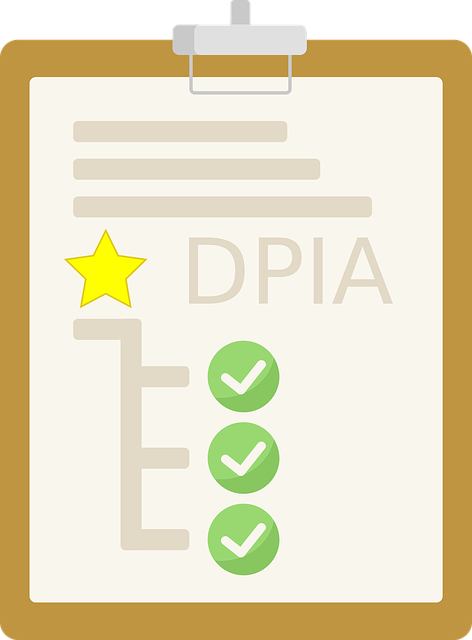For digital marketing novices, a SEO Certification Program is vital for career advancement. These programs teach essential skills like keyword research, on-page and off-page optimization, and tool usage, driving website traffic and search rankings. Choosing the right program involves matching your goals and skill level with comprehensive curricula, practical exercises, and industry recognition. Successful completion leads to entry-level roles or advanced education, while continuous learning through industry updates, forums, and projects ensures expertise in a dynamic field.
“Unleash your digital marketing potential with a Beginner’s guide to SEO Certification. In today’s online landscape, effective search engine optimization (SEO) is crucial for business success. This comprehensive article navigates your journey towards certification, exploring essential topics like understanding SEO fundamentals, choosing the right program, and mastering practical skills.
We delve into the benefits of certification, career prospects, and how to prepare for success. Whether you’re new to SEO or seeking to enhance your skills, this guide offers a clear path to becoming a proficient SEO specialist through the right certification program.”
Understanding SEO: A Beginner's Guide

For beginners delving into the digital marketing landscape, understanding Search Engine Optimization (SEO) is a fundamental first step. SEO involves optimizing websites and online content to improve their visibility on search engines like Google, Bing, or Yahoo. This process ensures that when users conduct searches using specific keywords, relevant websites appear in the top results. A successful SEO strategy can drive organic traffic to your site, enhance user experience, and ultimately boost your online presence.
A Beginner’s Guide to SEO highlights essential concepts such as keyword research (identifying terms your target audience uses to search), on-page optimization (optimizing content and HTML tags for relevant keywords), and off-page strategies (building backlinks from reputable sources). Many aspiring marketers find the prospect of SEO daunting, but it is a crucial component in any digital marketing campaign. An effective SEO Certification Program provides structured learning, ensuring beginners grasp these fundamentals and gain practical skills to compete in today’s competitive online arena.
Why Get an SEO Certification? Benefits and Career Prospects

An SEO Certification Program is a powerful tool for individuals looking to establish or advance their careers in digital marketing. In today’s competitive online landscape, search engine optimization (SEO) has become an indispensable skill. By obtaining an SEO certification, beginners can gain a solid understanding of the fundamentals and emerging trends that drive successful online visibility. This knowledge equips them with the ability to optimize websites, improve search rankings, and attract organic traffic, which are crucial for businesses aiming to thrive in the digital realm.
The benefits extend beyond personal growth. SEO professionals with certified skills are highly sought after by companies across various industries. These certifications demonstrate expertise, making job seekers more attractive to potential employers. The demand for SEO specialists continues to grow as businesses recognize the importance of search engine rankings in generating leads and sales. With an SEO Certification Program under their belt, beginners can expect improved career prospects, higher earning potential, and opportunities to work on diverse projects, ensuring a dynamic and rewarding career path in digital marketing.
Choosing the Right SEO Certification Program for Your Needs

When considering an SEO Certification Program, it’s essential to align your learning path with your specific goals and needs. Different programs cater to various levels of expertise, from absolute beginners to advanced practitioners. Assessing your current knowledge base and career aspirations is crucial in making this decision. Look for programs that offer a comprehensive curriculum covering both technical and strategic aspects of SEO, ensuring you gain a well-rounded skill set.
Additionally, consider the reputation of the training provider and their track record in delivering quality education. Reading reviews from past students can provide valuable insights. Some programs may also specialize in specific areas like local SEO or content optimization, which could be beneficial depending on your interest and industry focus. Choosing a program that aligns with your learning style and offers practical exercises and hands-on experience will make your SEO Certification journey more effective and rewarding.
What to Expect from a Comprehensive SEO Course

When enrolling in an SEO Certification Program, beginners can expect a structured learning path designed to cover all foundational aspects of search engine optimization. A comprehensive course will introduce students to essential concepts such as keyword research, on-page and off-page optimization, technical SEO audits, link building strategies, and Google algorithm updates. Students will gain hands-on experience through practical exercises, case studies, and simulations that replicate real-world scenarios.
The curriculum should also include in-depth training on tools used by professionals to analyze websites, monitor rankings, and track key performance indicators (KPIs). Students can expect to learn how to create effective content strategies, optimize meta tags, improve site speed, and ensure mobile-friendliness – all vital components for achieving high search engine rankings. Moreover, a quality SEO Certification Program will equip beginners with the knowledge to measure campaign success and adjust strategies accordingly based on data-driven insights.
Hands-On Learning: Practical SEO Exercises and Projects

In a beginner SEO certification program, Hands-on learning is a cornerstone. Students are not just taught theories; they engage in practical SEO exercises and projects designed to mimic real-world scenarios. This approach ensures that by the time they complete their certification, they have developed a solid understanding of on-page and off-page SEO strategies. They learn how to conduct keyword research, optimize content for search engines, build backlinks, and analyze website performance using industry-standard tools.
Through these hands-on projects, beginners gain valuable experience in implementing SEO best practices. They work with real or simulated websites, making changes to improve their visibility on search engine results pages (SERPs). This practical exposure not only reinforces theoretical knowledge but also equips them with the skills needed to excel in entry-level SEO roles. By the end of these exercises, students are well-prepared to apply for beginner-level positions or continue their education in advanced SEO courses.
Preparing for and Passing the SEO Certification Exam

Preparing for and passing the SEO Certification Exam is a crucial step in your journey to becoming an expert in search engine optimization. The first step is to thoroughly understand the fundamentals covered by the SEO Certification Program. This includes key concepts like keyword research, on-page optimization, link building strategies, and analytics. Utilize official study materials, online courses, and practice exams to gain a solid grasp of these topics.
Once you feel confident in your knowledge, create a detailed study plan. Break down the content into manageable sections, allocate time for each, and simulate exam conditions during practice sessions. Remember, the SEO Certification Exam assesses not just factual knowledge but also your ability to apply concepts practically. Therefore, besides memorizing terms, focus on understanding how to implement SEO strategies in real-world scenarios.
Post-Certification: Taking Your SEO Skills to the Next Level

After successfully completing a Beginner SEO Certification Program, the next step is to put your newfound knowledge into practice and elevate your skills further. This is where the real growth and opportunities in Search Engine Optimization begin. One of the key aspects is to stay updated with the ever-evolving algorithms and trends in the digital marketing landscape. Regularly reviewing industry news and blogs will help you keep pace with Google’s changes and ensure your strategies remain effective.
Expanding your knowledge base by exploring advanced SEO topics, such as technical SEO, content optimization, and link building, is also essential for taking your skills to the next level. Engaging in online forums, joining SEO communities, and participating in workshops or webinars can provide valuable insights and networking opportunities. Additionally, hands-on experience through personal projects or volunteering for local businesses can significantly enhance your understanding of on-page and off-page optimization techniques.
